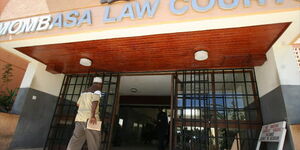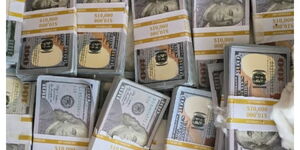The Central Bank of Kenya (CBK) has laid out comprehensive details explaining different monetary policies, regarding exchanging damaged banknotes and coins.
The laws and policies are meant to inform Kenyans on standard practices and set limits for Kenyans making transactions using legal currencies.
However most banknotes end up damaged and mutilated during transactions, forcing Kenyans to find alternatives to exchanging them.
In most cases, Kenyans prefer giving the mutilated and extremely old notes and coins in matatus, a strategy that usually does not work.
CBK under the headship of Governor Patrick Njoroge has outlined some protocols they consider before exchanging damaged notes and coins to save Kenyans from all the trouble.
The mutilated coins and notes take various forms, including burnt notes and damage to currency by chemicals.
However, CBK and other accredited banks can refuse to exchange notes and coins if they establish they were deliberately damaged or mutilated.
CBK can decline to exchange a banknote if it is not more than a half and continuous.
Central Bank can also turn down a request to exchange a note if it does not have at least one complete serial number.
Moreover, the request can be rejected if the banknote presented is not genuine.
Before CBK carries out the exchange, the coins and notes are carefully examined, and the person presenting it grilled to establish how they were damaged.
"The Bank is not obliged to exchange any damaged currency. The Bank will carefully examine any banknotes and coins presented for exchange. The Bank may seek to know from the presenter how the notes and coins were damaged," CBK states.
Notably, CBK does not accept Old Generation notes, upon the expiry of the exchange window, similar to what was announced in 2019.
Commercial banks regularly make deposits of banknotes and coins to their accounts in the Central Bank, where they are processed and sorted.












